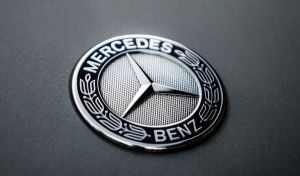Mercedes-Benz Group's CEO, Ola Källenius, is in China this week, seeking to expand local technology partnerships that could help reverse the company's declining sales in its most important market. Källenius, who has made several trips to China this year, is joined by other members of Mercedes’ management and supervisory board, according to sources familiar with the matter. The key objective of the visit is to make Mercedes' new electric vehicles (EVs) more appealing to Chinese consumers.
Targeting the Next-Generation Electric Vehicle Launch in 2025
According to sources, the new partnerships aim to enhance Mercedes' next-generation EVs, particularly for the 2025 launch of its battery-only CLA, the first model based on the company's new electric vehicle platform. This launch is seen as critical in the battle to regain market share from Chinese automakers, which have been outperforming international brands in the EV segment. The focus is on collaborating with local companies that provide key in-car technologies, such as mapping and entertainment systems, to tailor the CLA and other models specifically to Chinese consumer preferences.
A Mercedes representative in China confirmed that staff from headquarters would be visiting but declined to provide additional details.
Navigating Challenges in China’s Competitive Market
China remains Mercedes-Benz’s largest market, contributing 36% of its global sales in 2023. However, the company is under increasing pressure to regain momentum amid a stagnant Chinese economy and intensified competition from domestic automakers. Last week, Mercedes followed rival BMW Group in cutting its full-year profit outlook, citing weaker demand for luxury cars in China.
To counter these challenges, Källenius has launched a sales offensive with new products and localized innovations. Last month, Mercedes-Benz announced a collaboration with ByteDance Ltd., the parent company of TikTok, to integrate generative AI applications into its in-car systems for the Chinese market, enhancing the appeal of its vehicles with cutting-edge technology.
Strengthening Strategic Partnerships
Källenius may also meet with Li Shufu, Mercedes’ top shareholder and the founder of Zhejiang Geely Holding Group Co., during his visit. Geely is a crucial partner for Mercedes in China. Meanwhile, Mercedes-Benz continues to deepen its ties with other local partners. In his previous visit, Källenius announced a joint investment of 14 billion yuan ($1.99 billion) with long-time partner BAIC Motor Corp. to produce electric and light-commercial vehicles specifically designed for Chinese consumers.
These models will include an extended-wheelbase version of the electric CLA, a GLE crossover, and a new luxury electric multi-purpose vehicle. These China-focused offerings are a crucial part of Mercedes’ strategy to compete more effectively with local automakers who have been dominating the EV market with competitive pricing and faster innovation cycles.
A Broader Trend of Localization
Mercedes-Benz isn't the only German automaker accelerating its localization efforts in China. Volkswagen Group has also intensified its focus on faster production and development in China, optimizing costs by leaning heavily on local supply chains. VW has partnered with Chinese EV startup Xpeng Inc. to roll out new products in China, while also investing in new joint ventures with local suppliers like Horizon Robotics, reinforcing its commitment to staying competitive in the world’s largest EV market.
As competition heats up, these localization strategies are essential for traditional carmakers to retain a foothold and drive future growth in China’s rapidly evolving automotive industry.
BYD Acquires German Importer Amid Lagging Sales
BYD is taking control of its German distributor, Hedin Electric Mobility, as the automaker's leadership grows increasingly frustrated with sluggish sales in Europe's largest market. Germany is crucial to BYD's strategy of capturing a 5% share of the European auto market in the midterm. The company has set a goal of selling 120,000 cars in Germany by 2026, but as of July, it had only registered 1,432 vehicles, representing just 0.1% of the market, according to the KBA motor transport authority.
Despite a significant marketing boost as the automotive sponsor for the European soccer championship held in Germany this summer, BYD’s sales in the country have remained disappointingly low.
Hedin Electric Mobility has been BYD's general importer in Germany since 2022, supplying cars and parts to around 30 BYD dealerships nationwide. By acquiring Hedin's business, BYD aims to streamline its operations, allowing it to sell directly to dealers and gain more control over pricing and vehicle availability.
Although BYD is taking over the distribution, Hedin's German dealerships will continue to operate as BYD partners. Additionally, Hedin will maintain its role as BYD's importer and distributor in Sweden. The financial terms of the deal, which is pending regulatory approval, have not been disclosed.
This move comes as Chinese EV manufacturers, including BYD and SAIC's MG brand, face challenges expanding in Europe. These include weakening demand and new tariffs on EVs imported from China. In July, registrations of Chinese EVs in Europe dropped, with Chinese brands capturing just 9.9% of the overall EV market.






